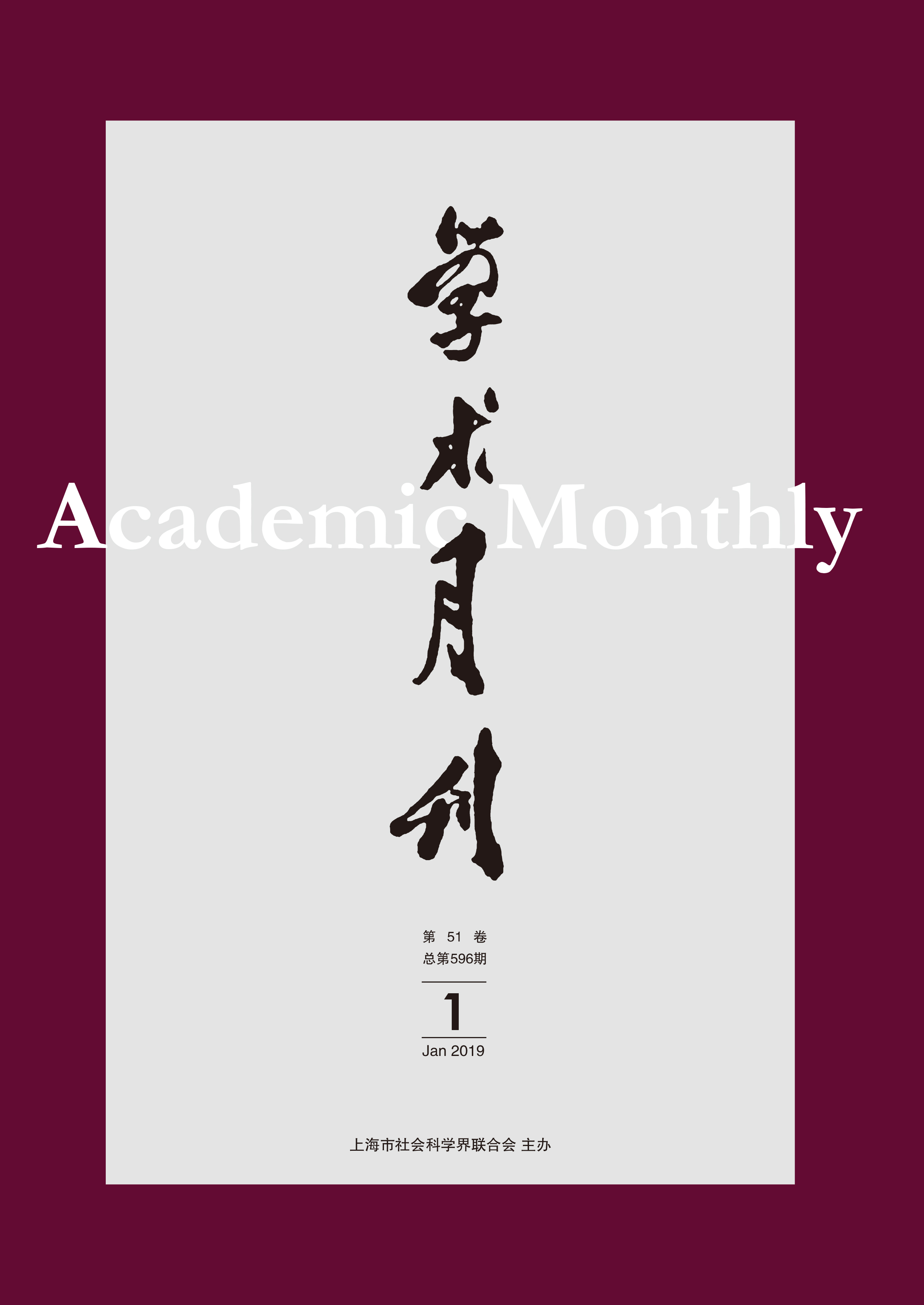Citation:
Zao ZHANG. Liang Zongdai and Symbolist Poetics[J]. Academic Monthly, 2019, 51(1): 135-149.

Liang Zongdai and Symbolist Poetics
-
Abstract
Liang Zongdai’s outstanding contribution to deepening the understanding of symbolism has not been fully recognized yet in China. As a poet, literary critic and translator, Liang has demonstrated his great competence in French. When it comes to his supreme belief in art and beauty, ideal and ' pure poetry”, and the poetry relationship between thoughts and feelings, individuality and commonness, ego and the universe, tradition and modernity, it was really interpreted in the spirit of Valery. He defended the form and structure of poetry, the deliberate exploration behind the poetry, the rubbing of ideas, and the hard work of repeated deliberation and the meticulous polishing, which contrasted sharply with the creation of romanticism, which favors accomplishing with one breath and out of inspiration. Liang’s main theoretical writings inspired the ' new-moon-school” poets to advocate the revolution in the form of new poetry and exerted a great influence on Bian Zhilin, one of the most talented poets in the 1930s. More than forty years later, the ' Five Poets in Sichuan” – namely Bai Hua, Zhong Ming, Zhang Zao, Ouyang Jianghe and Zhai Yongming, were deeply convinced and encouraged to start their own experiment in ' post-misty-poetry”.
-

-
References
-
Access
-
-
[1]
Xuewu WEN
. Poetics of Beijing School and Construction of the Legitimacy Theory of Modern Chinese Poetry. Academic Monthly,
2020, 52(12): 112-122.
-
[2]
Chang’an FANG
. Transmission-Reception and the Reconstruction of Chinese New Poetry History. Academic Monthly,
2022, 54(10): 134-143, 155.
-
[3]
,
. . Academic Monthly,
2017, 49(02): 179-184.
-
[4]
FANG Chang’an
. . Academic Monthly,
2018, 50(7): 142-149.
-
[5]
. . Academic Monthly,
2016, 48(09): 169-178.
-
[6]
Guoming SHEN
. Historical Retrospection and Route of Chinese Socialist Culture of Rule of Law. Academic Monthly,
2022, 54(9): 96-110.
-
[7]
. . Academic Monthly,
2016, 48(05): 121-132.
-
[8]
. . Academic Monthly,
2017, 49(06): 164-172.
-
[9]
. . Academic Monthly,
2017, 49(12): 112-121.
-
[10]
. . Academic Monthly,
2017, 49(09): 39-50.
-
[11]
Huansun YOU
. The Compilation of General Genealogy of Local Families and Its Significance in Huizhou Area during the Ming and Qing Dynasties. Academic Monthly,
2022, 54(11): 181-194.
-
[12]
Xiaobai CHU
. On the Family-Nation Discourse and Its Symbolic Structure during the Anti-Foreign-Religion Movement in Late Qing Dynasty. Academic Monthly,
2021, 53(3): 146-159.
-
[13]
Haiqing WEN
. Reanalysis on the Culture Implications of the Typified Numbers with 7 in the Mongolian and Yuan Times. Academic Monthly,
2021, 53(2): 195-205.
-
[14]
Yiwei SONG
. The Textual Circulation and Symbolic Meaning of “ying-te-na-xiong-nai-er”. Academic Monthly,
2021, 53(6): 205-216.
-
[15]
Hongjie CHEN
. Symbolic Construction of Judicial Justice: Between Cognition and Norm. Academic Monthly,
2021, 53(6): 137-147.
-
[16]
Heng QUAN
. An Outline of the Theoretical Study about Xi Jinping Thought of New Era Socialism with Chinese Characteristics. Academic Monthly,
2021, 53(2): 5-12.
-
[17]
Jitong LIU
. The Social Construction of “Social Welfare Consensus” in China and the Goal of Modern Socialist Welfare State. Academic Monthly,
2022, 54(6): 73-84.
-
[18]
. . Academic Monthly,
2016, 48(04): 143-157.
-
[19]
Yan MA
, Lin WANG
, Peixiang YANG
. An Analysis about “the New Era of Socialism with Chinese Characteristics” based on Social Structure of Accumulation Theory. Academic Monthly,
2018, 50(10): 58-68.
-
[20]
Shikai WANG
. Organic Unified Politics:The Core of Chinese Socialist System’s Stereotype. Academic Monthly,
2020, 52(2): 76-85, 94.
-
-



 沪公网安备 31010102003103号
沪公网安备 31010102003103号 DownLoad:
DownLoad: